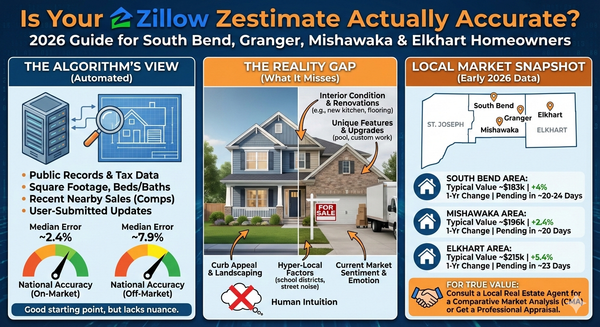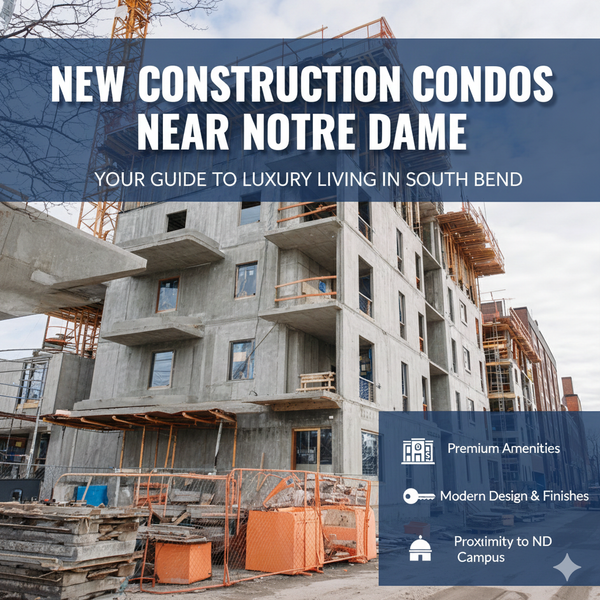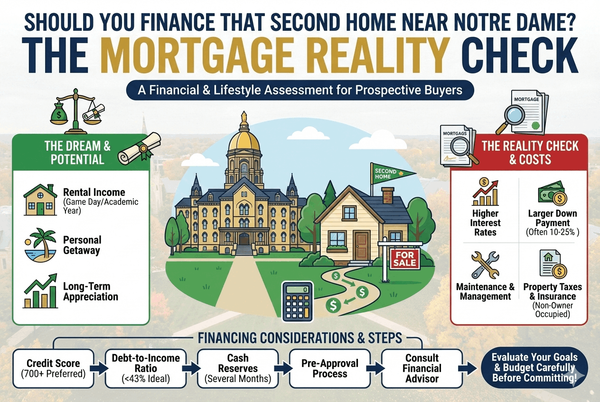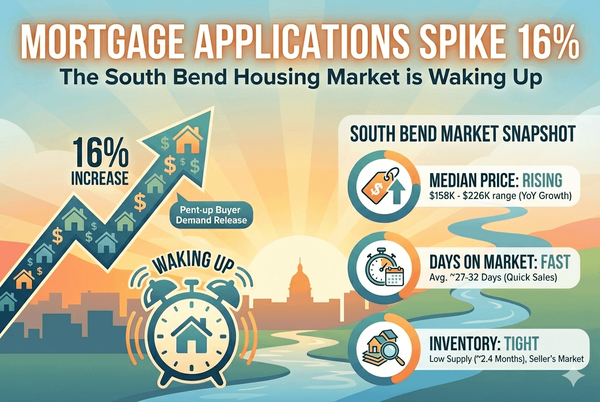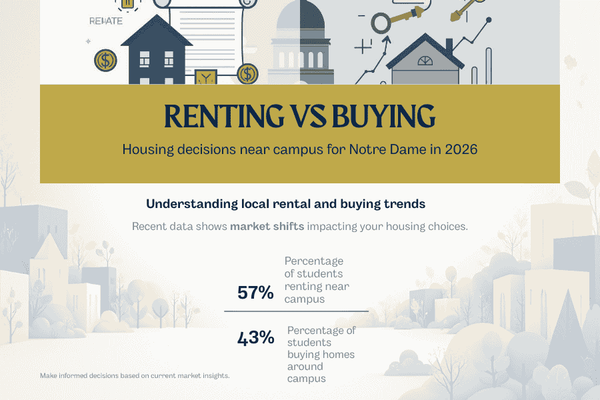REAL ESTATE BLOG ARTICLES

Homeowner Checklist: Essential Tasks Before Moving In & Unpacking
Pre-Move Check List! So, you’ve navigated the South Bend housing market and now hold the keys to your new home! Congratulations! But before you dive into decorating and unpacking, there are several essential tasks to tackle that will ensure a smooth transition into your new space. We’ve compiled a c

Home Sales & Capital Gains in Indiana
Your Home Sale and Capital Gains in Indiana What is capital gains tax? Let's start with the basics: It's a tax on profits from selling assets like stock or real estate. When you sell these for more than you paid, the IRS taxes the gain. You can find more information on capital gains from the IRS we

New Year, New Home: Why Winter Might Be the Perfect Time to Buy in St. Joseph & Elkhart Counties
Is Winter a good time to buy in St Joseph and Elkhart County Indiana? While spring and summer might be the traditional times to buy a house, there are some hidden gems to be found in the colder months here in St. Joseph and Elkhart Counties. Here's why winter could be the perfect time to find your d
Categories
- All Blogs (73)
- Best Time To Sell (5)
- Condos and Villas (22)
- Elkhart (34)
- For Buyers (54)
- For Sellers (26)
- FSBO (13)
- Granger (31)
- Guides (41)
- Housing Market (37)
- Housing Trends (2)
- Inspections (3)
- Lifestyle (12)
- Market Trends (10)
- Mishawaka (32)
- Mortgage (17)
- Notre Dame (43)
- Property Tax (3)
- South Bend (55)
- Things To Do (5)
- Waterfront (5)
Recent Posts


